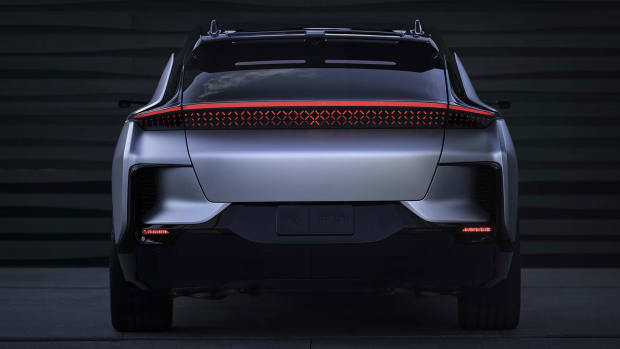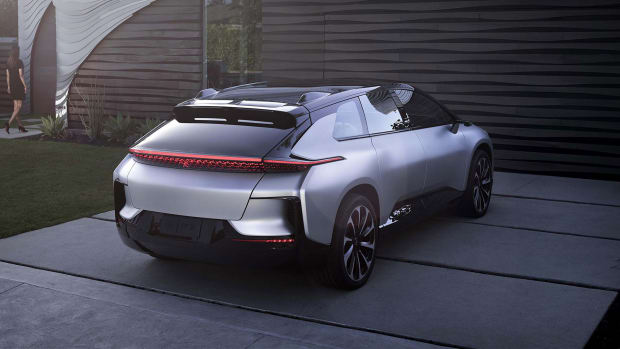At Faraday Future Intelligent (FFIE), history has repeated itself.
The startup, once considered the new Tesla (TSLA), raised hopes when it said it was about to produce its first vehicle for sale. The Los Angeles company gave a date for the start of production and the delivery of the first units.
Six years later Faraday still hasn't produced a vehicle.
The company has delayed producing the flagship model, FF 91 Series, which has been in development since at least 2016, until the third or fourth quarter of 2022. Production was to start this month.
Cash Needs
"The company needs additional cash to commercially launch the FF 91, and is currently seeking to raise additional capital to fund its operations through" the end of this year, Faraday said in a new regulatory filing.
Faraday adds that it's seeking to raise about $325 million. The need for fresh cash is explained by "recent supply chain issues."
"The company is continuing to engage in confidential discussions and negotiations with certain potential investors regarding a potential financing transaction to raise additional capital to fund production activities through the end of 2022 and beyond," Faraday said.
Indeed, the car manufacturer warns that this is not the last time that it will need fresh financing.
"The company’s cash needs after the launch of the FF 91 will depend on the extent to which the company’s actual costs vary from the company’s estimates and the company’s ability to control these costs and raise additional funds," Faraday explained.
"Any challenges in supplier engagements, delays in ramping capacity or labor at the company’s Hanford, Calif., manufacturing facility or for sales and service engagements, rising prices of materials, or ongoing global supply chain disruptions may further increase the need for additional capital to launch the FF 91 series," the firm detailed.
And "[apart] from the FF 91 series, substantial additional capital will be required to fund operations, research, development, and design efforts for future vehicles."

Farraday Future
Losses Widened
The group started the first quarter with $530.5 million on hand and ended the period with a bit more than half that figure, $277.4 million, according to the filings. Its first-quarter operating costs were $149 million and its net loss widened to $153.1 million.
It's perhaps not surprising to see Faraday once again postpone the start of production of the FF 91, a luxury electric sedan that the company says has a range up to 370 miles, 1,050 horsepower, and ability to go from 0 to 60 mph in 2.5 seconds.
The company says it has a "reasonable" preorder backlog but does not specify figures.
The difficulties Faraday faces are common to many startups looking to produce their first vehicles. Few, including Tesla, have achieved this without hiccups.
Currently, Lordstown (RIDE), Canoo (GOEV), and Nikola (NKLA) are in close to the same boat as Faraday after creating a lot of excitement with investors and consumers.
Rivian (RIVN) and Lucid (LCID), which have been selling their first models for a few months now, are having a hard time managing their production-rate increases.

Farraday Future
A Turbulent History
Co-founded in 2014 and financed by Jia "YT" Yueting, a Chinese millionaire and owner of a media conglomerate in China, Faraday Future has long touted itself as the new center of the auto industry.
The company's goals have since changed, more than once. First, Faraday Future wanted to develop electric and autonomous vehicles; then the firm wanted to launch a car-subscription service; and more recently Faraday Future wanted to produce the iconic Batmobile.
Those plans haven't panned out. Plus, other substantial obstacles got in the way. In 2017 a Shanghai court ordered the seizure of the property of Jia, who now lives in California. A year later, he filed under the bankruptcy laws.
In July 2021 Faraday Future merged with a special-purpose-acquisition company, or SPAC, called Property Solutions Acquisition Corp. That deal gave the automaker $1 billion.
The company, which also is known as Faraday Future Intelligent Electric, is facing a U.S. Securities and Exchange Commission investigation tied to possible misrepresentations by former executives.
Faraday was at one point mistaken as a secret front operation for Apple's (AAPL) self-driving project.







